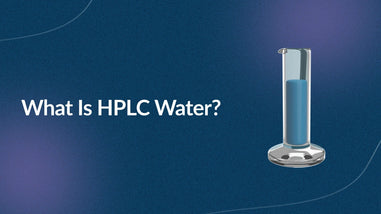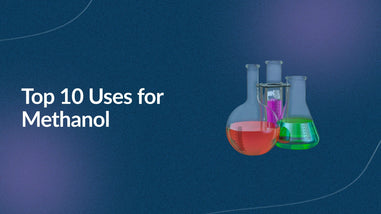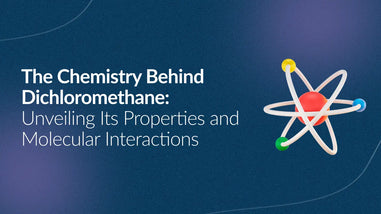- No products in the cart.
Ethanol Extraction of Cannabis
Alcohol (ethanol) extraction of cannabis is versatile, effective, and nontoxic solvent for converting Cannabis sativa flower to concentrates such as oil, wax, shatter, rosin, and hash for therapeutic consumption or topical use. Warm ethanol extraction produces a full spectrum product, while processing cannabis at room temperature or under supercooled environments more efficiently isolates cannabinoids. Whether you need pure, non-denatured ethanol or specialty glassware, Lab Pro has the equipment you require to extricate your cannabis compounds of choice with alcohol.

Cannabinoids
Cannabinoids come from the Cannabis sativa plant. Humans have been using cannabis since the third millennium BC. This popular plant is a host to over 500 different chemical compounds. Epidiolex® is a purified form of CBD that is approved by the FDA for the treatment of certain forms of epilepsy. The National Center for Complimentary and Integrated Health (NIH) funds studies for the pain-relieving properties of major and minor cannabinoids as well as terpenes. The NIH also lists research on the potential for cannabis to relieve symptoms relating to HIV/AIDS, inflammatory bowel syndrome, multiple sclerosis, and cancer. Forbes recently predicted that the U.S. legal cannabis industry will witness $24 billion in sales in 2021.
Decarboxylation
When cannabis is heated, the cannabinoids are decarboxylated, meaning that their -COOH “carboxyl” groups are removed. Tetrahydrocannabinolic acid (THCA) and cannabidiolic acid (CBDA) convert to their neutral forms, THC and CBD.1 The decarboxylated molecules act as partial agonists or agonists of the human body’s cannabinoid receptors, CB1 and CB2.
In essence, cannabinoids need to be decarboxylated to be effective. Therefore, edible, and topical cannabis products are converted to THC or CBD prior to use, while oils and resinous products undergo decarboxylation when they heated just before consumption.
Methods of Extraction with Ethanol
Ethanol, C2H5OH, is a polar molecule because it has both positively and negatively charged ends. It can also be considered non-polar because it has a net charge of zero. Because it is polar -OH group, it will mix with water. However, ethanol will also dissolve non-polar compounds because of its non-polar ethyl group.
Ethanol is an effective solvent for extracting highly hydrophobic cannabinoids, like THC, CBD, and terpenes, from the trichomes of Cannabis sativa flowers. Warm ethanol extraction will extract a wider range terpenes, but it will also solubilize water-soluble chlorophyll, a compound which is usually undesired in extracts. Chilling ethanol increases it affinity for solubilizing fat soluble cannabinoids and terpenes.
- Warm Extraction with Ethanol: Soxhlet extraction of cannabis with ethanol is a warm-extraction technique that is fast and requires less solvent (~100-150 mL of ethanol for every gram of solid) than cool extraction.2 This method utilizes ≥95% ethanol but can be difficult and hazardous to scale-up because the ethanol is brought to reflux. The crude stream needs additional purification to remove waxes, pigments, and chlorophyll. EM Extraction Magazine illustrates a small batch setup for Soxhlet extraction with ethanol.
- Winterization with Ethanol: Since ethanol is a polar molecule, warm method extraction may also solubilize chlorophyll and waxes, meaning that winterization or dewaxing is required to yield a clean oil. Supercooled ethanol forces the waxes and fats to the top of the oil, making them easy to remove. A rotary evaporator can remove the ethanol with minimal terpene loss, after which the solvent can be recycled.
- Cold Extraction with Ethanol: Cold process is a preferred large-scale method for ethanol extraction of cannabis because of its efficiency. US patent US9987567B1 describes a method in which the cannabis flowers are ground and soaked in −40° C. to −50° C ethanol for five minutes under pressure. The ethanol is then evaporated, after which the oil is decarboxylated and distilled.
Lab Pro Equipment for Alcohol Extraction
To comply with FDA regulations, only pure, non-denatured ethanol can be used to perform cannabis extractions. Visit Lab Pro’s shop to browse our supplies of the finest quality chemicals and lab equipment for the oil extraction industry.
- 200 proof pure ethanol in 1-pint, 1-gallon, and 55-gallon quantities for properly permitted enterprises
- LED recirculating chiller/bath, 0° to -20C, 120V, 60Hz. 700W. 5L reservoir
- Yamato cooling water circulators for rotary evaporators
- Rotary evaporators
- Solvents for HPLC
- Beakers, flasks, and other glassware
- Soxhlet extraction equipment
- PPE
Note: These products and chemicals are meant to be used for research, industrial work, cleaning or disinfecting and should always be stored out of the reach of young children or infants.
For over 40 years, Lab Pro Inc. has been committed to delivering the highest quality chemicals, ESD protection, laboratory and cleanroom PPE supplies to medical device and electronic manufacturing laboratories worldwide. To learn more, visit the biggest Lab Supply showroom in California, or contact us online or at 888-452-2776.
References
- Yang, Y. et al. “Cannabis sativa (Hemp) Seeds, Δ9-Tetrahydrocannabinol, and Potential Overdose”. Cannabis Cannabinoid Res. 2017; 2(1): 274–281. https://doi.org/10.1016/B978-0-12-804791-0.00001-X. (http://www.sciencedirect.com/science/article/pii/B978012804791000001X)
- Manseau, Marc W.; Compton, Michael T. Chapter 1 - An Introduction to the Complex Connection Between Cannabis and Schizophrenia, The Complex Connection Between Cannabis and Schizophrenia, Academic Press, 2018, Pages 1-7, ISBN 9780128047910












































